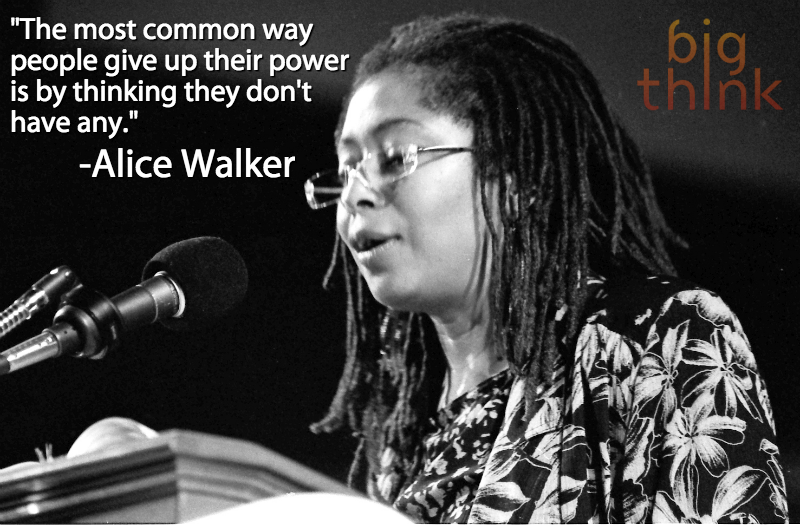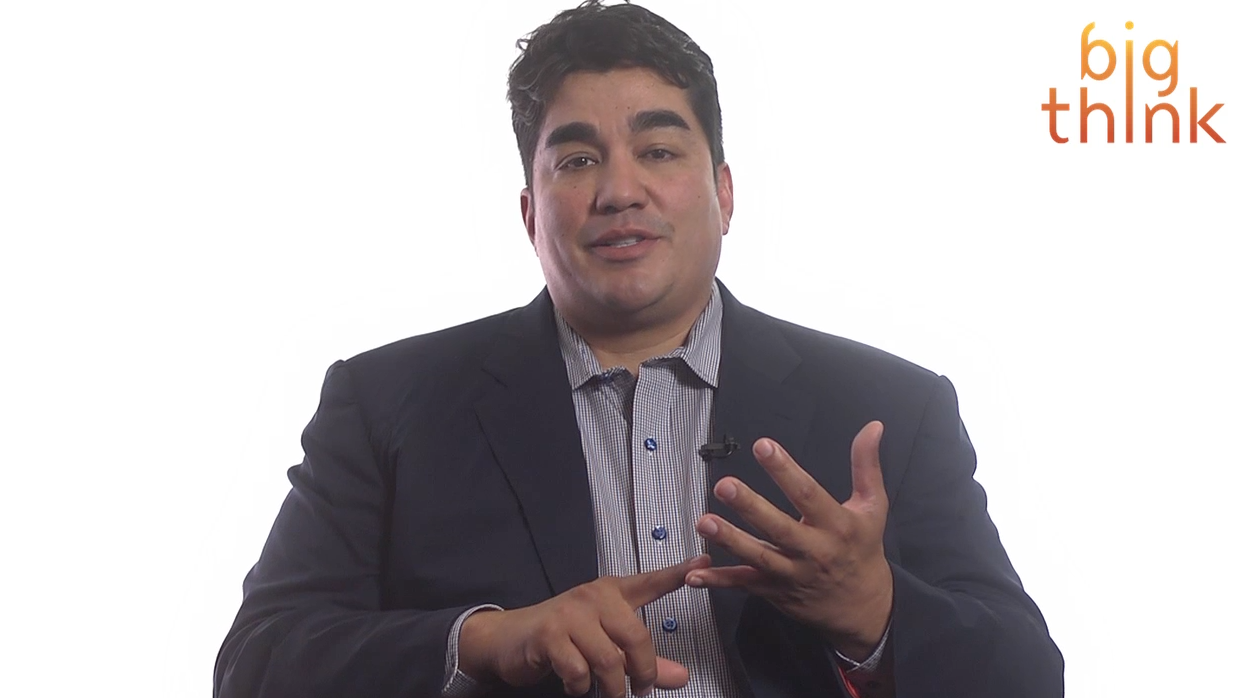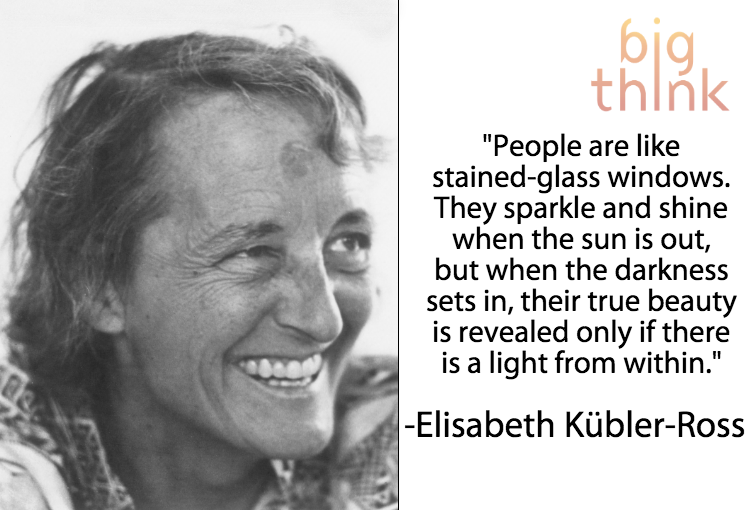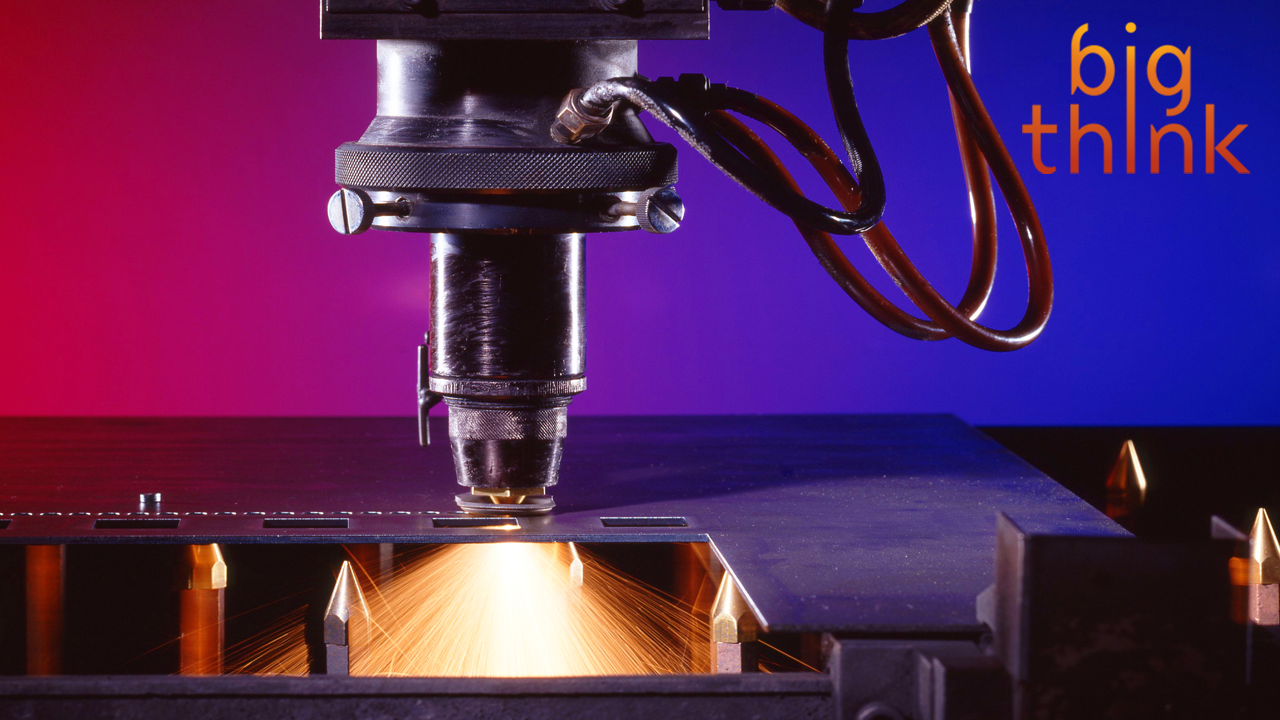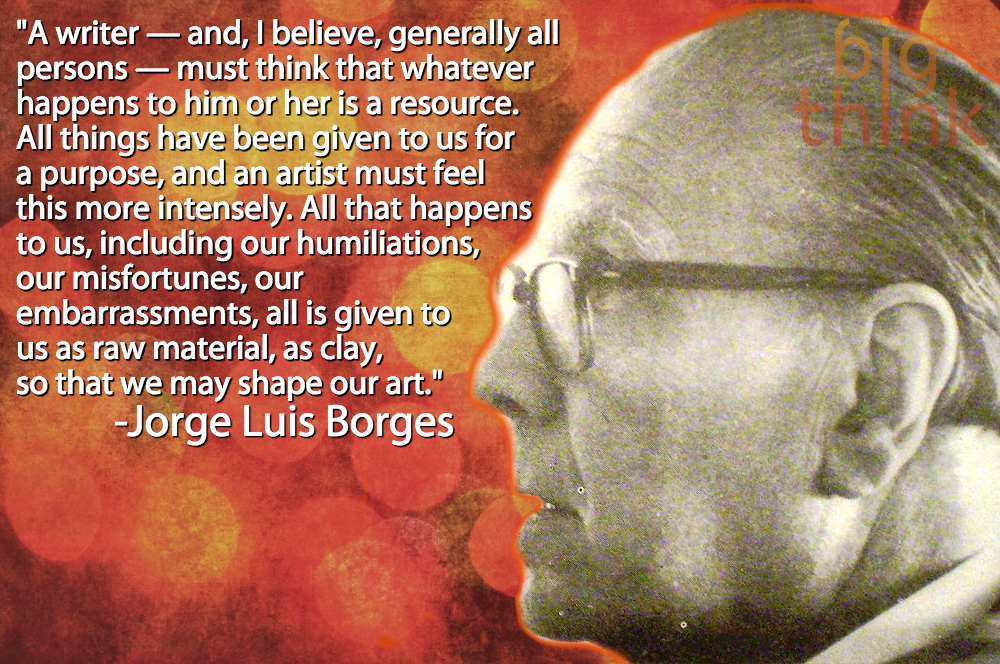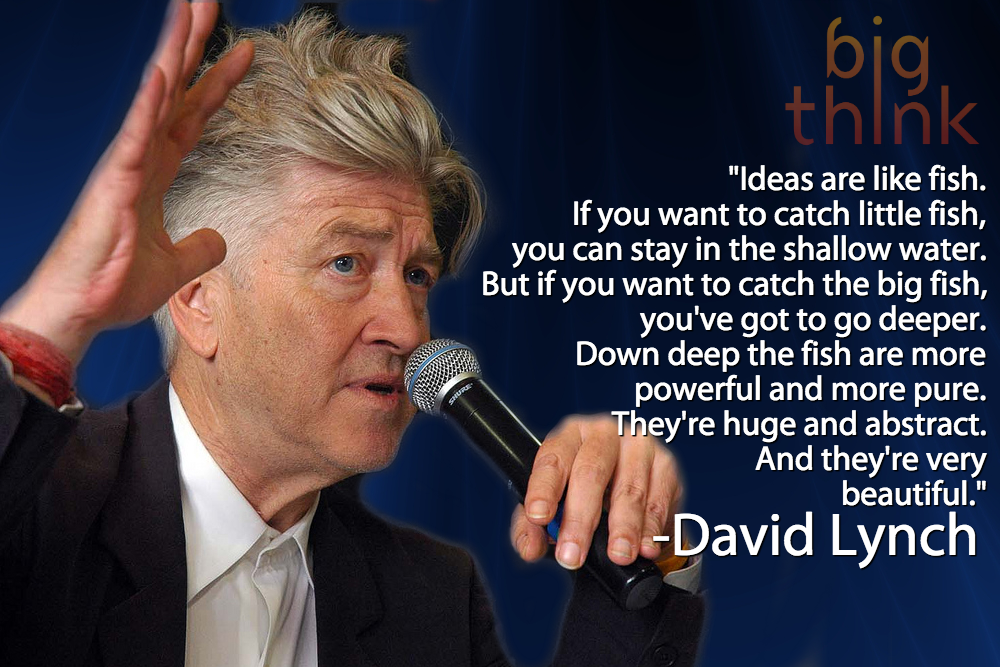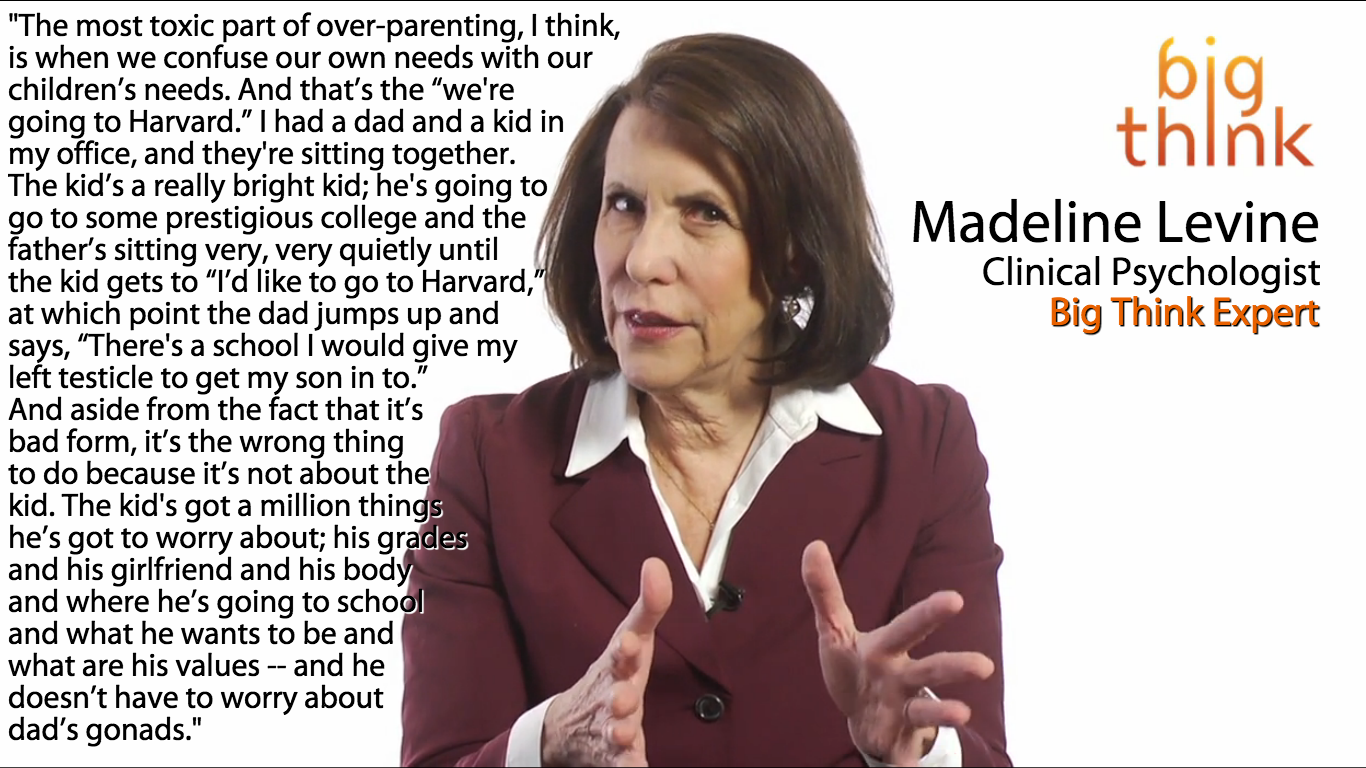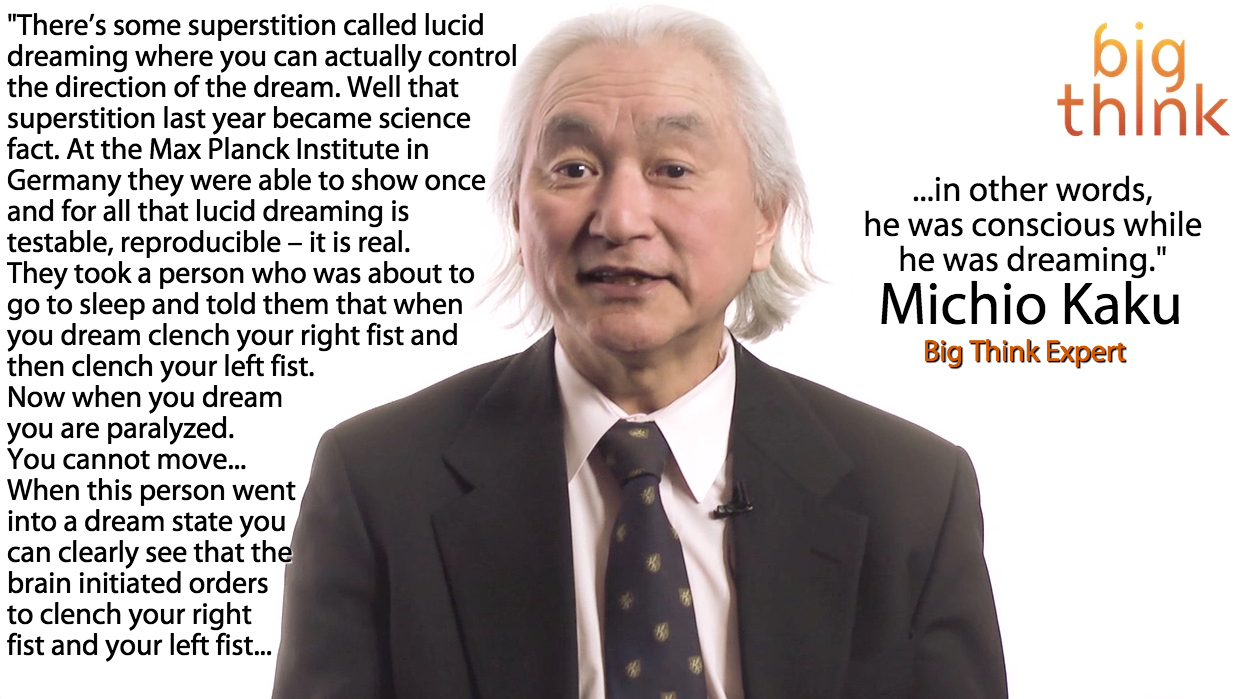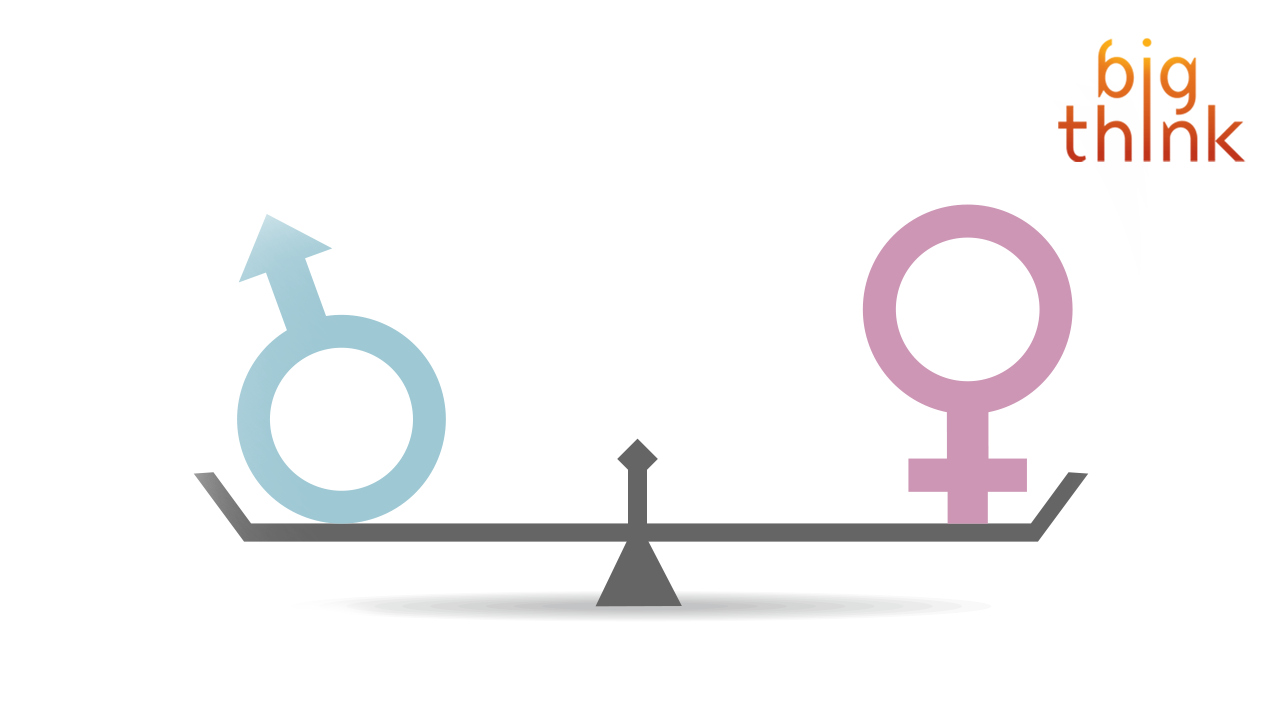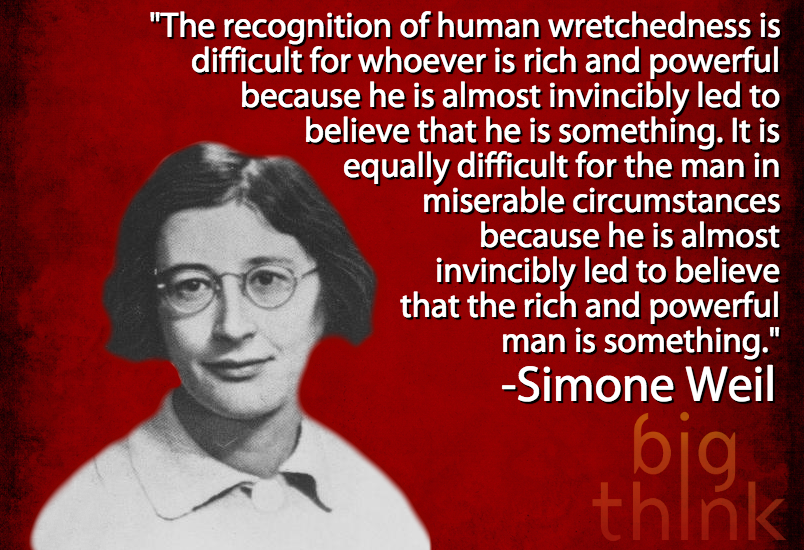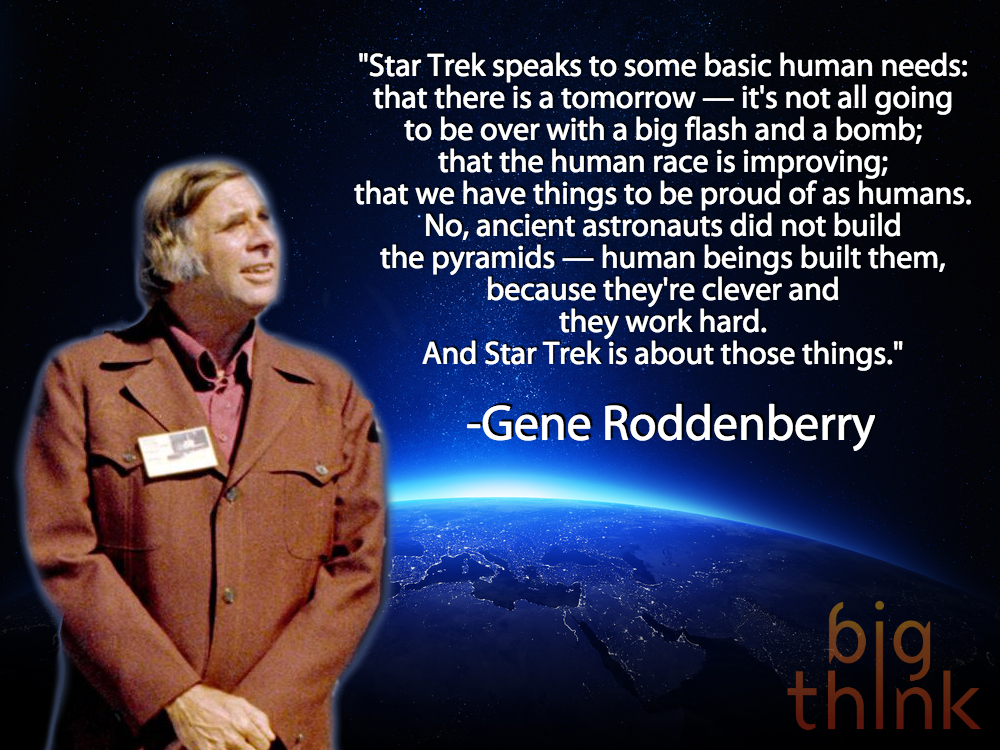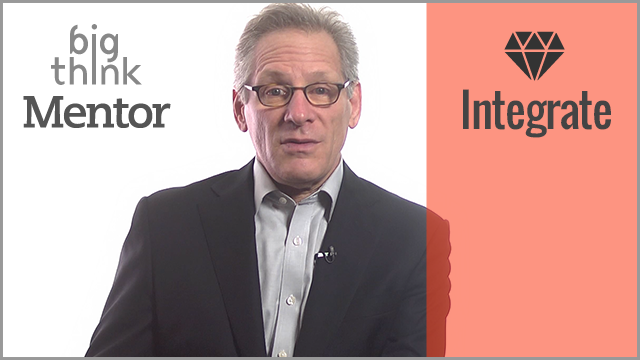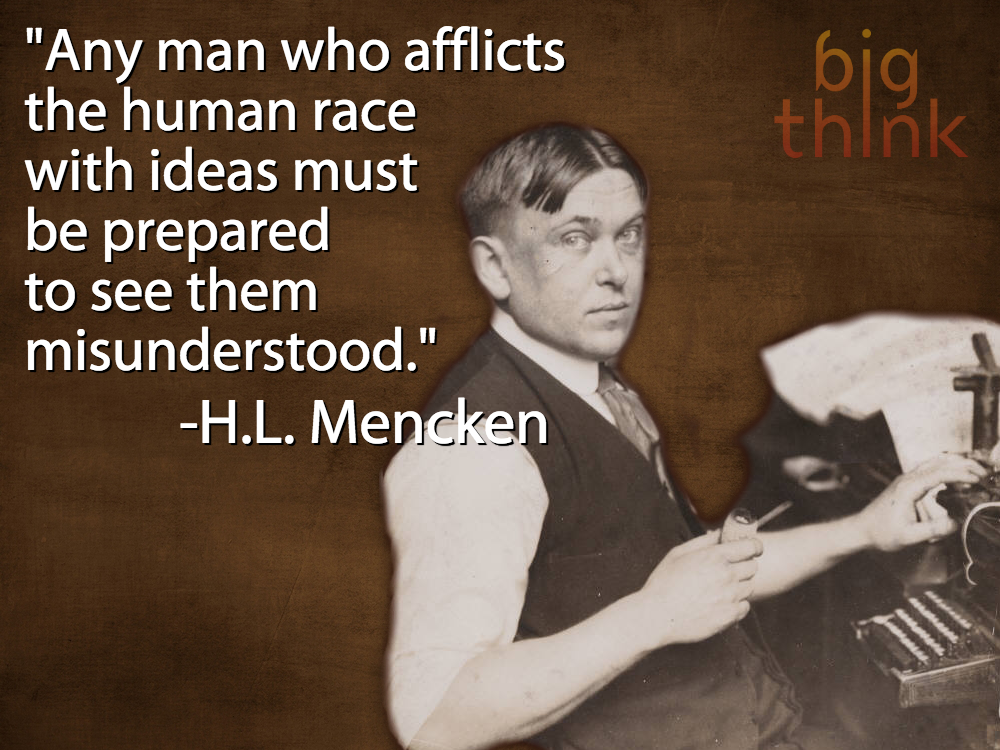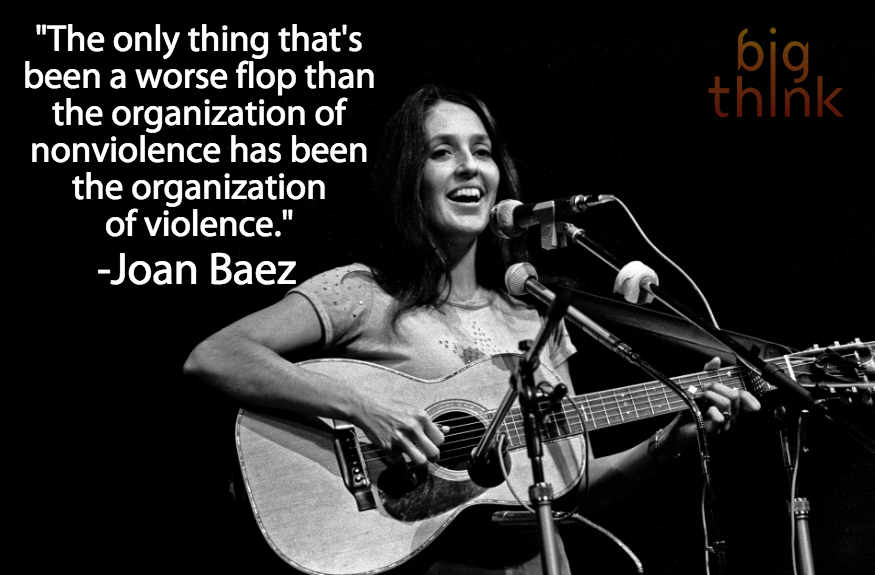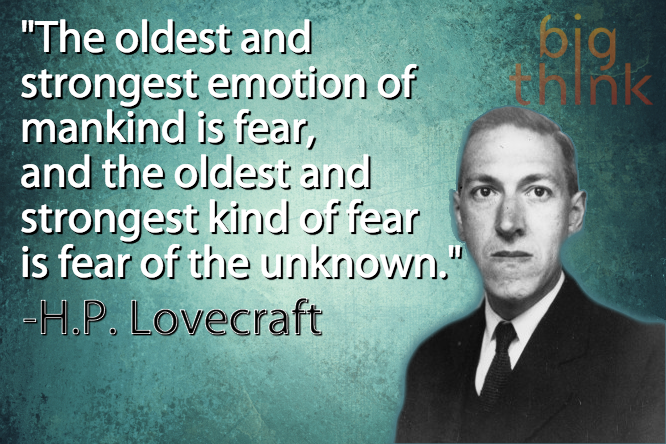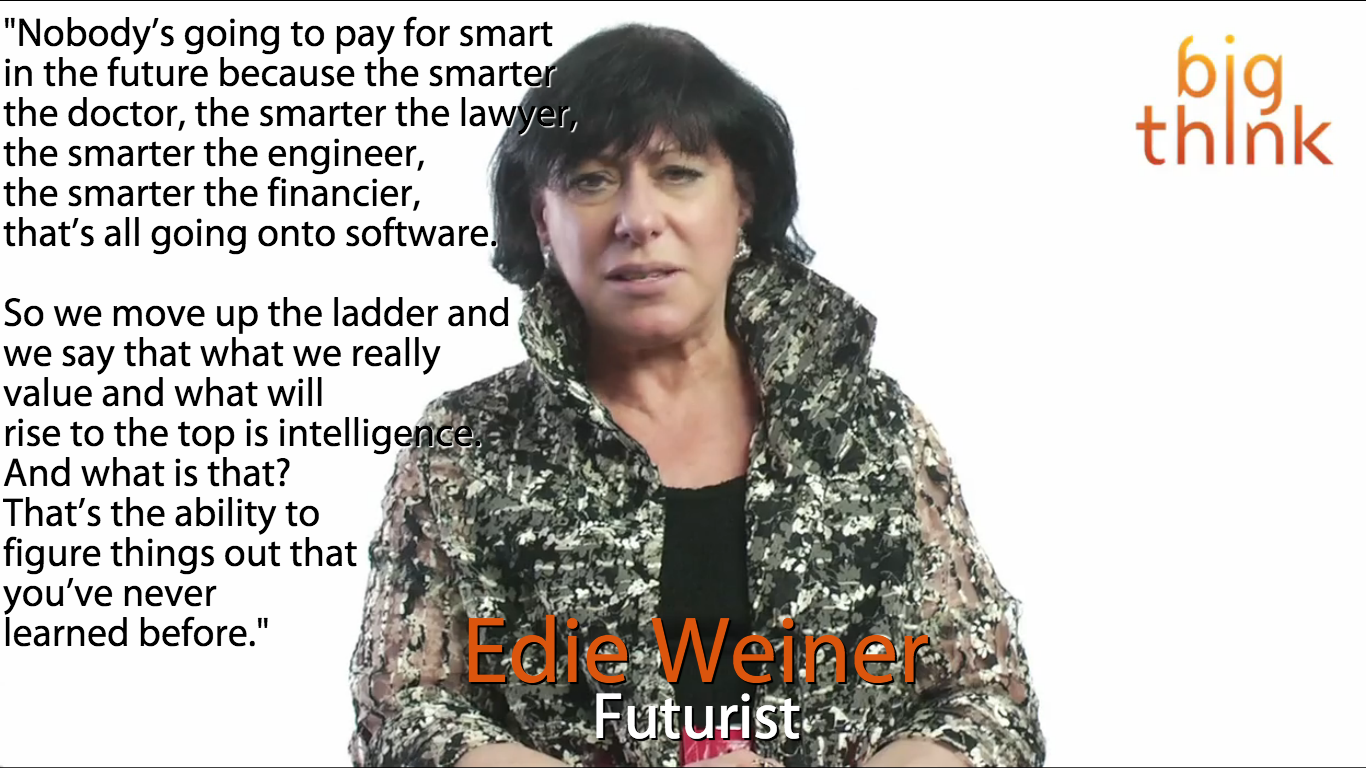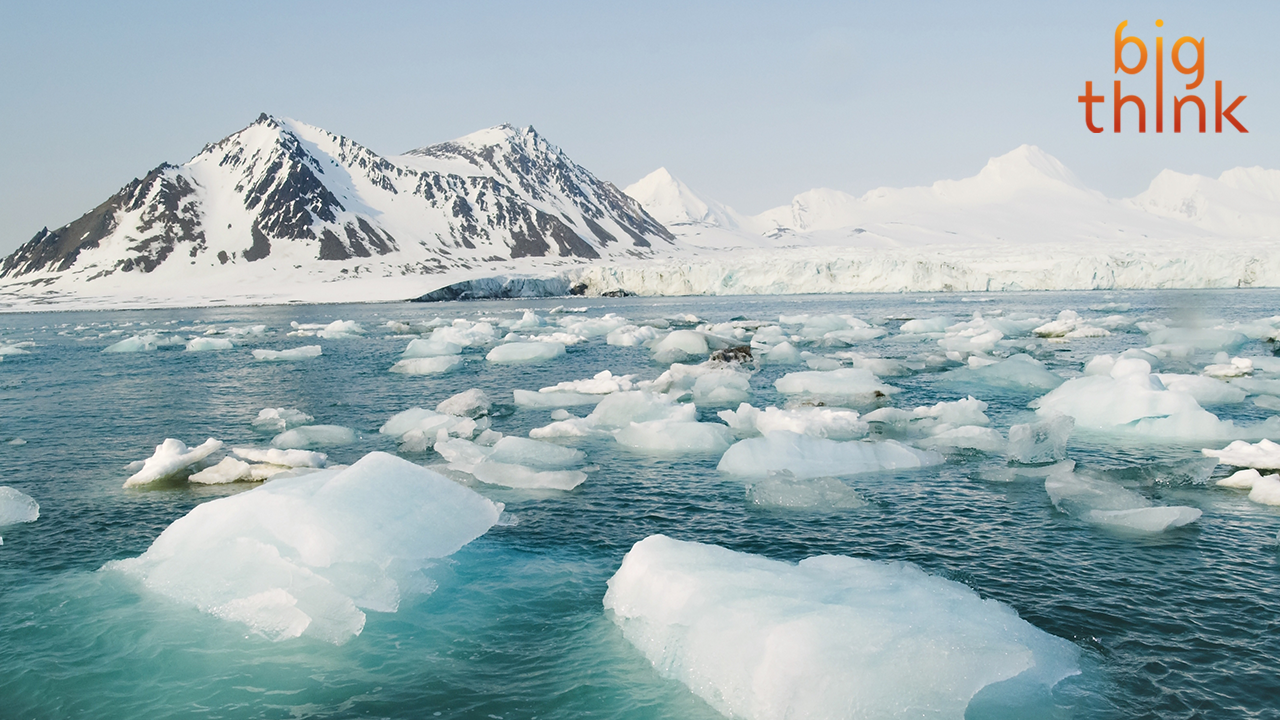bigthinkeditor

The CEO of SAP discusses leadership ethics and why never missing a Little League game is good for business.
Biographer Walter Isaacson discusses his new book The Innovators and why Steve Jobs was a prickly teambuilder.
Henry Rollins dished on the power and limitations of music in his Big Think interview:
“Is music a viable force for change? Can music stop things, start things, change things? To a certain degree yes, maybe in pop culture, but if a song or an artist could stop a war Bob Dylan and Bob Marley would have.”
Sherman Alexie, author of the award-winning novel The Absolutely True Diary of a Part-Time Indian, on Young Adult fiction:
“A lot of people have no idea that right now Y.A. is the Garden of Eden of literature… One person asked me, ‘Wouldn’t you have rather won the National Book Award for an adult, serious work?’ I thought I’d been condescended to as an Indian — that was nothing compared to the condescension for writing Y.A.”
“You see what power is – holding someone else’s fear in your hand and showing it to them.”
-Amy Tan, from her book The Kitchen God’s Wife (1991)
Pulitzer Prize-winning journalist Nicholas Kristof recently visited Big Think to discuss his new book A Path Appears and talk about the tactics advocates must employ to raise awareness for a good cause.
Civil rights leader Mary McLeod Bethune on never giving in to discrimination:
“If we accept and acquiesce in the face of discrimination, we accept the responsibility ourselves and allow those responsible to salve their conscience by believing that they have our acceptance and concurrence. We should, therefore, protest openly everything… that smacks of discrimination or slander.”
“The most common way people give up their power is by thinking they don’t have any.”
-Alice Walker, author of The Color Purple
Even an Iron Chef can fall into the trap of letting his kids eat junk food. His secret to selling his kids on nutrition is to present good foods in forms and textures they enjoy.
“People are like stained-glass windows. They sparkle and shine when the sun is out, but when the darkness sets in, their true beauty is revealed only if there is a light from within.”
Kip Tindell, CEO of the Container Store, explains that his employees are the company’s most valuable asset and that it’s important to pay them what their worth to foster a positive workplace culture.
Mark Hatch, a leader of the Maker Movement, is CEO of the DIY workshop TechShop. Hatch explains how TechShop allows makers the opportunity to harness its resources to innovate and create amazing things.
“A writer — and, I believe, generally all persons — must think that whatever happens to him or her is a resource. All things have been given to us for a purpose, and an artist must feel this more intensely. All that happens to us, including our humiliations, our misfortunes, our embarrassments, all is given to us as raw material, as clay, so that we may shape our art.”
“Ideas are like fish. If you want to catch little fish, you can stay in the shallow water. But if you want to catch the big fish, you’ve got to go deeper. Down deep the fish are more powerful and more pure. They’re huge and abstract. And they’re very beautiful.”
Pulitzer Prize-winning journalist Nicholas Kristof discusses the importance of a compelling narrative that appeals to human biases when promoting a good cause.
Madeline Levine discusses an instance when one overbearing father shared a little too much information. From her Big Think interview on parenting, available here.
The renowned physicist and scholar discusses the science of lucid dreaming, from his Big Think interview posted earlier this week.
Throughout the developing world, “and increasingly in Africa and Asia,” the single largest occupation for women is agriculture. Yet although they perform much of the labor, women and girls (who […]
“The recognition of human wretchedness is difficult for whoever is rich and powerful because he is almost invincibly led to believe that he is something. It is equally difficult for the man in miserable circumstances because he is almost invincibly led to believe that the rich and powerful man is something.”
“Star Trek speaks to some basic human needs: that there is a tomorrow — it’s not all going to be over with a big flash and a bomb; that the human race is improving; that we have things to be proud of as humans. No, ancient astronauts did not build the pyramids — human beings built them, because they’re clever and they work hard. And Star Trek is about those things.”
How many times have you heard a colleague preach about the importance of achieving a healthy work-life balance? For a lot of self-helpers, achieving an equilibrium between the personal and […]
“Any man who afflicts the human race with ideas must be prepared to see them misunderstood.”
How many times have you heard a politician or school board official vow to improve education by increasing students’ access to technology? Perhaps you’re familiar with the now-dormant plan to […]
Theoretical physicist, best-selling author, and all around cool guy Michio Kaku returns to Big Think to discuss the science of dreaming, as well as everything Freud got right about our subconscious.
“The only thing that’s been a worse flop than the organization of nonviolence has been the organization of violence.”
“The oldest and strongest emotion of mankind is fear, and the oldest and strongest kind of fear is fear of the unknown.”
“Nobody’s going to pay for smart in the future because the smarter the doctor, the smarter the lawyer, the smarter the engineer, the smarter the financier, that’s all going onto software. So we move up the ladder and we say that what we really value and what will rise to the top is intelligence. And what is that? That’s the ability to figure things out that you’ve never learned before.”
-Futurist Edie Weiner, from her Big Think interview
“There is no part of planet Earth which has so recently arrived on our desk as a challenge and as an opportunity. So therefore, cooperation in the Arctic is one of the most crucial issues of the 21st-century”
-Ólafur Ragnar Grímsson, President of Iceland, from his Big Think interview
Despite knuckle-gripping tension and mass nuclear proliferation during the Cold War, not a single detonation has caused mass civilian casualties since 1945. According to investigative journalist Eric Schlosser, such good fortune is nothing more than blind luck.
There are two reasons why President Grímsson considers the Arctic the next major environmental, political, and economic playing field: climate change and the region’s untapped natural resources.







